It Takes a Garden

A major theme of the Advanced Practitioner Program at Spirit Rock and the June retreat at the Forest Refuge is how to make sense of the differences in teaching between different Buddhist traditions — particularly between an Early Buddhist understanding of the Nature of Awareness and Tibetan Dzogchen.
Naturally, I have my own personal preference, but I don’t want to make that a problem. Which is why I love Bhikkhu Analayo’s great little YouTube video on Respecting the Different Buddhist Traditions. (30 minutes) He talks about seeing the different traditions as different kinds of flowers, laid out in a “garden” of historical time — thus avoiding both fundamentalism (which he says would be like preferring a black-and-white photo to an actual living garden) while also avoiding universalism (which he says would be like putting all the flowers into a blender!)
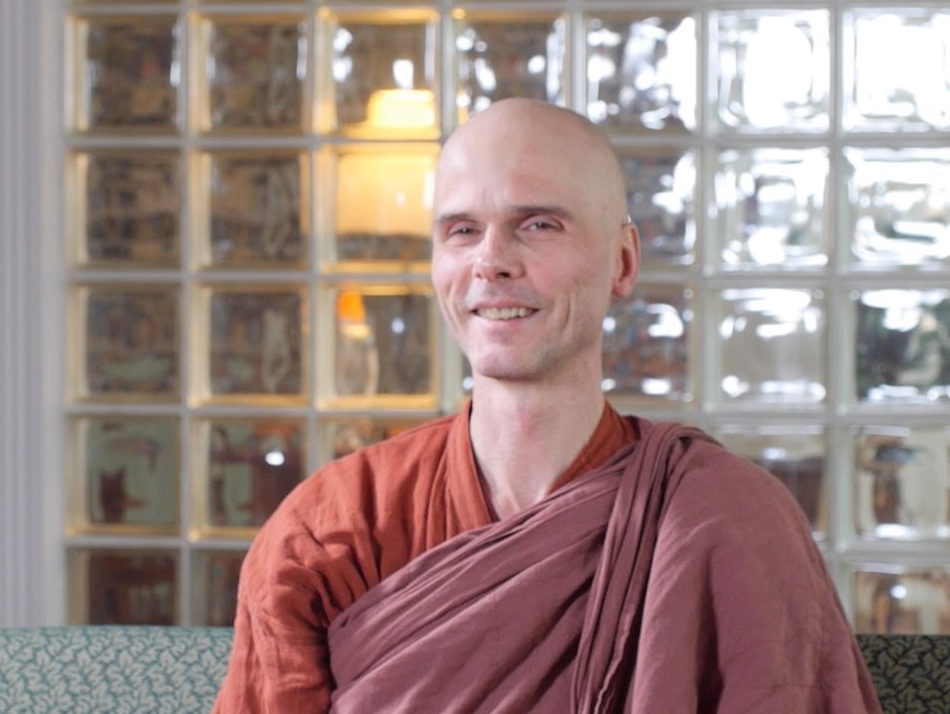
I love this talk, even though he’s not on “my side” in the Nature of Awareness “debate.”
Here’s a frame from the video. I can’t figure out how to imbed it, so just click here.
Not Just Tonight
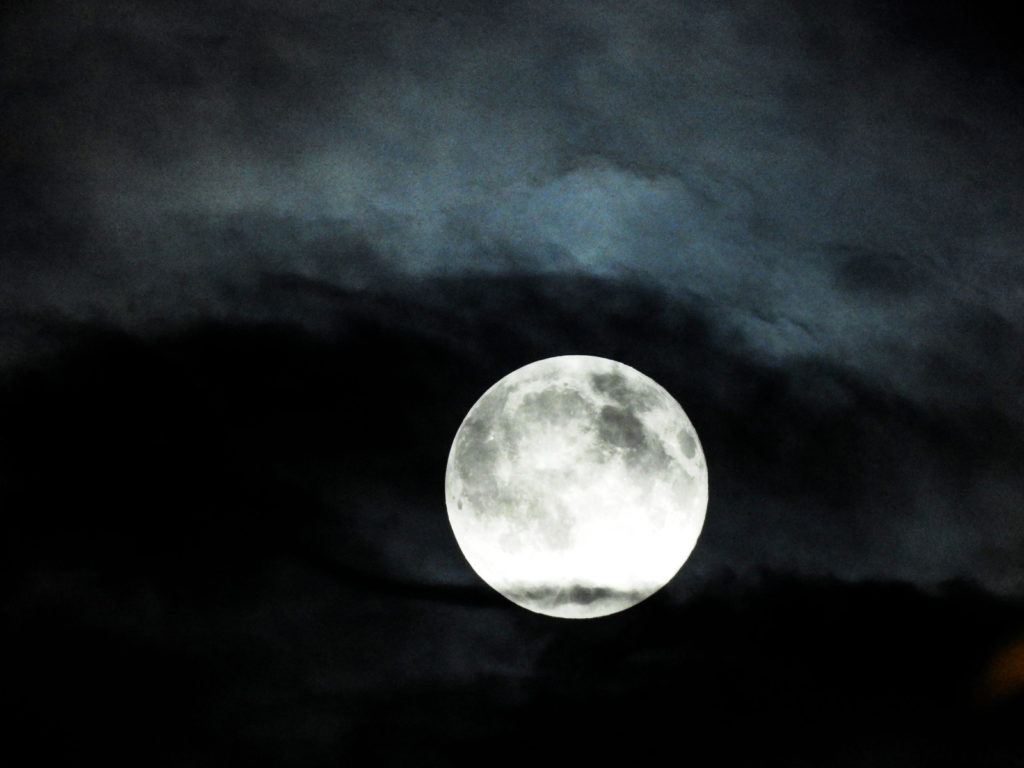
In honor of today’s 50th anniversary of our landing on the moon and in appreciation for my father, whose work in developing an equation to describe orbital ellipses was used in the guidance and control systems of the Apollo 11 space craft (he was — literally — a rocket scientist), I offer this haiku by Ihara Saikaku:
Villages may lack
sea bream or flowers
but they all have
tonight’s moon.
***
I’m proud of you, Dad.
Heavy Sigh.

Dakota Homecoming
by Gwen Westerman,
published in The Sun, August 2019 issue
We are so honored that
you are here, they said.
We know that this is
your homeland, they said.
The admission price
is five dollars, they said.
Here is your button
for the event, they said.
It means so much to us that
you are here, they said.
We want to write
an apology letter, they said.
Tell us what to say.
The Economy of Generosity

At the Study & Practice class last night, I explained that I set a registration fee for the class ($20), which is a fee-for-service arrangement that participates in our “normal” market economy (in which I collect a fee to cover the costs that I have to pay).
But I teach the class under an entirely different arrangement. It’s what Buddhist call the Practice of Dana, which I think of as an Economy of Generosity: I offer the teachings freely — as an expression of my love and appreciation for these teachings and for those who have taught me — and in doing so, I provide an opportunity for the people who are taking my class to participate in this same Economy of Generosity. By which I mean the opportunity for them to give freely (to me financially, yes, but in other ways too, such as to the class by participating whole-heartedly).
Or not.
Either way is OK with me. (That’s what makes it an Economy of Generosity.)
After the class, I got to talking with a friend about this idea of giving and receiving, and I recalled a book I read when I was in college that had a tremendous impact on me. The book is The Gift: Imagination and the Erotic Life of Property, by Lewis Hyde. (I had mis-remembered the title as: The Erotic Life of Generosity, which maybe says something about why it had such an impact on my understanding of generosity!)
My friend also mentioned a book about Art and Generosity, which had a big impact on him, and after looking around on Google, I think maybe this is the same book! It’s now called The Gift: Creativity and the Artist in the Modern World, and apparently it’s recently been re-published in a special twenty-fifth anniversary edition.
Here’s a sample from the Introduction (original 1983 edition), which now that I’m reading it with “Buddhist eyes,” has a whole other level of meaning:
“There are several distinct senses of ‘gift’ that lie behind these ideas, but common to each of them is the notion that a gift is a thing we do not get by our own efforts. We cannot buy it; we cannot acquire it through an act of will. It is bestowed upon us. Thus we rightly speak of ‘talent’ as a ‘gift,’ for although a talent can be perfected through an effort of will, no effort in the world can cause its initial appearance. Mozart, composing on the harpsichord at the age of four, had a gift.
“We also rightly speak of intuition or inspiration [and I would add: insight] as a gift. As the artist works [as the meditator practices], some portion of his creation [her insight] is bestowed upon him [her]. An idea pops into his head, a tune begins to play, a phrase comes to mind, a color falls in place on the canvas. Usually, in fact, the artist does not find himself engaged or exhilarated by the work, nor does it seem authentic, until this gratuitous element has appeared, so that along with any true creation comes the uncanny sense that ‘I,’ the artist, did not make the work. ‘Not I, not I, but the wind that blows through me,’ says D. H. Lawrence.” [The Buddhist teaching of Not-self!]
The first chapter of The Gift continues exploring the nature of gifts and giving:
“…a cardinal property of the gift: whatever we have been given is supposed to be given away again, not kept. Or, if it is kept, something of similar value should move on in its stead, the way a billiard ball may stop when it sends another scurrying across the felt, its momentum transferred. You may keep your Christmas present, but it ceases to be a gift in the true sense unless you have given something else away. As it is passed along, the gift may be given back to the original donor, but this is not essential. In fact, it is better if the gift is not returned but is given instead to some new, third party. The essential is this: the gift must always move. There are other forms of property that stand still, that mark boundary or resist momentum, but the gift keeps going.”
Maybe This is What’s Going On in Her Mind
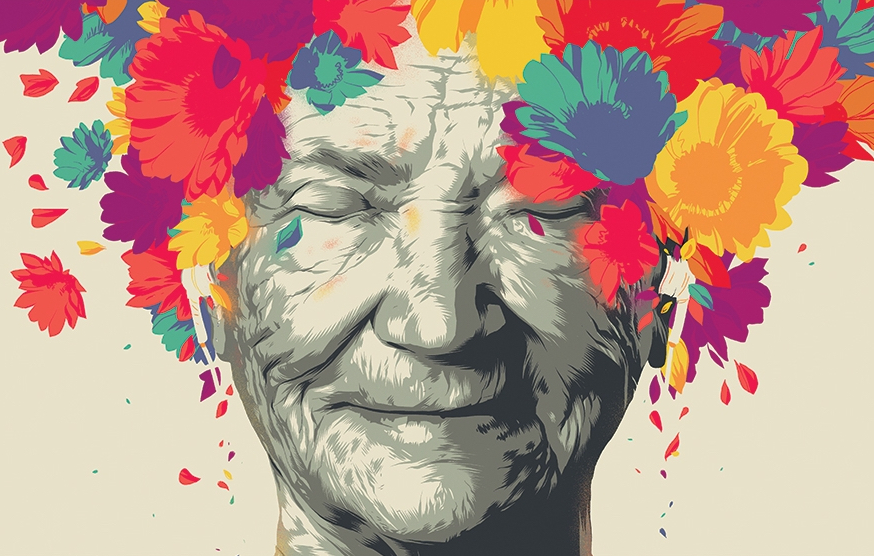
As many of you know, my mom (who will be 90 next month), has dementia. This is not an uncommon situation, I know. Recently her condition has deteriorated. Not dramatically. But significantly.
And, well, it’s challenging.
Which is why I am delighted to have found that Phillip Moffitt’s annual daylong retreat for care providers was recorded — all 7 hours and 45 minutes of it — and is available on dharmaseed here.
I’ve only listened to the first half of it, but already I’m feeling more resilitant. (I only wish they had recorded it on video — not just audio — because he does a segment with guided movement instructions that I’m going to try — even without seeing it, because it sure sounds like they’re having a lot of fun!)
The retreat was called Renew and Revitalize: Sustaining Yourself as a Care Provider. I especially like the part where he explains how being present refreshes us.
Check it out.
Or Not Caught.
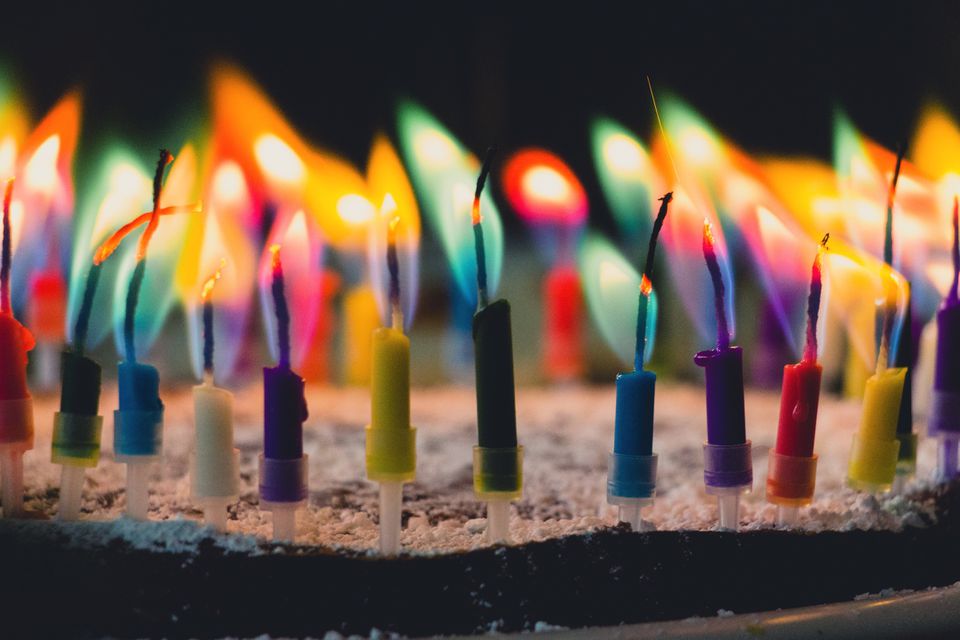
Fear and Love
by Jim Moore
published in The Sun, June 2019 issue
I wish I could make the argument that a river
and a sunset plus a calm disregard of the ego
are enough. But whatever comes next must include
tents in the parking lot, that homeless camp
on the way to the airport,
and the hole in your cheek
from the cancer removed yesterday.
I said last night,
in the few seconds before I fell asleep,
You do realize, don’t you, everything
is falling apart? You said, OK,
I’ll try to keep that in mind. And now it is
starting to be late again, just like every other night
for the last seventy-five years. Fear and love,
a friend said in an impromptu speech
at his surprise birthday party,
we all live caught between fear and love.
He tried to smile as he spoke, then sat down.
Yesterday you saw the moon
from the operating table
where they were about to cut you.
Look! you demanded, and the surgeon bent and turned
to see it from your angle,
knife in hand.
Try This at Home!
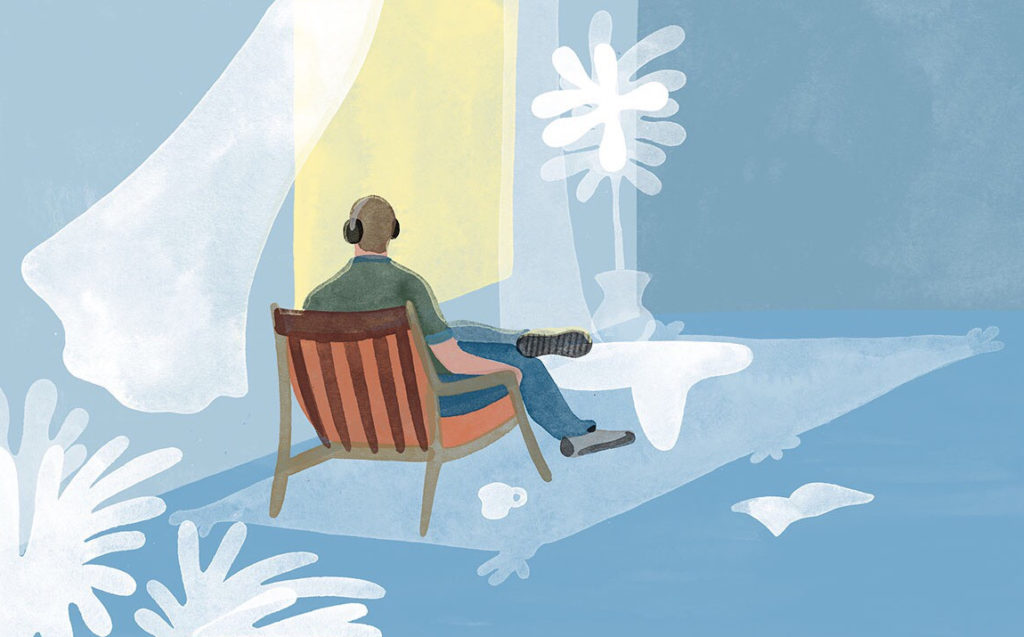
I just checked dharmaseed and it looks like quite a lot of the talks from the June retreat I sat at the Forest Refuge are already posted and publicly available! (click here for the full list)
Most of the talks I’d already heard. But not the guided instructions Guy offered on Abiding in Emptiness (click here) and the Taking the Practice Home talk Guy gave on the very last day of the retreat, which really sums up the Awareness practice and speaks very clearly about how to integrate it into classic Insight practice. (click here)
You could pretty much do the retreat on your own, right there at home if you’d like, by listening to the talks, starting with first morning instructions on Mindfulness of Breathing, and then going through all the 31 talks that are posted.
Or if you’d just like to take in some of the highlights, I’d recommend:
Falling in Love with the Breath, (Sally)
The Development of Metta, (Sally)
Three Limbs of Equanimity, (Sally)
The Nature of Awareness, Part 2, (Guy)
Morning Instructions: Big Mind, (Sally)
Morning Instructions: Abiding in Emptiness,(Guy)
Taking the Practice Home, (Guy)
If We Pay Attention

Now that I’m back home, I’ve starting writing again in my “Goodwill” journal where, since this is my Year of Getting to Know Goodwill, I make note of whatever acts of kindness, friendliness, generosity, etc. that I notice during the day — whether done for me, or by me, or between other people.)
So in that spirit, for today’s post I offer this entry from The Book of Delights, by Ross Gay:
“Something I’ve noticed riding on Amtrak trains, like the one I’m on right now between Syracuse and Manhattan, is that people leave their bags unattended for extended periods of time. Maybe they go to the end of the car to use the bathroom, or sometimes they go to the far end of the train to the cafe, which smells vomity like microwave cheese. My neighbor on this train — across the aisle and one row up — disappeared for a good twenty minutes, her bag wide open, a computer peeking out, not that I was checking. She is not unusual in this flaunting of security, otherwise know as trust, on the train. Nearly everyone participates in this practice of trust, and without recruiting a neighbor across the aisle to ‘keep an eye on my stuff while I use the restroom,’ which seems to be a coffee shop phenomenon. Trusting one’s coffee shop neighbor, but not the people in line, et cetera.
“I suppose, given the snugness of a train, especially if it’s full, one might speculate there’s a kind of eyes-on-the-street-ness at play, although it seemed to me, this morning, when I was first leaving my valuables on my seat for pilfering, my laptop and cellphone glittering atop my sweatshirt and scarf, most everyone was sleeping and so provided little if any eyewitness deterrent.
“I suppose I could spend time theorizing how it is that people are not bad to each other, but that’s really not the point. The point is that in almost every instance of our lives, our social lives, we are, if we pay attention, in the midst of an almost constant, if subtle, care taking. Holding open doors. Offering elbows at crosswalks. Letting someone else go first. Helping with the heavy bags. Reaching what’s too high, or what’s been dropped. Pulling someone back to their feet. Stopping at the car wreck, at the struck dog. The alternating merge, also known as the zipper. This care taking is our default mode and it’s always a lie that convinces us to act or believe otherwise. Always.”
***
He’s right. It’s become clear to me — now that I’m paying attention — that we are all swimming in a sea of goodwill.
This Year, Summer Starts July 16

I’m back from sitting a month-long retreat (with stories to tell) and now I’m just about ready to begin teaching a 5-week Study & Practice class on How to Work with the Five Hindrances. (Details below.)
The first class meets on July 16. Want to attend? There’s still time! Email me here.
Our practice during these five sessions will focus on how to work with what Buddhist texts call the Five Hindrances — five common challenges to meditation:
- Desire (“If-only-I-could” Mind)
- Aversion (“If-only-I-could-get-rid-of” Mind)
- Restlessness and Worry (“I-can’t-settle-down” Mind)
- Sloth and Torpor (“I-can’t-stay-awake” Mind)
- Doubt (“I-can’t-do-it” Mind)
***
*When will we meet?
Tuesday evenings, 7:00 pm to 8:30 pm, July 16 to August 13
*Where will we meet?
First Unitarian Church of St. Louis, 5007 Waterman
*What will we do?
Each session will include a 30-minute sit, instructions, and Q&A.
*What will it cost?
The teachings are offered on a dana (donation) basis, but there is a $20 fee to register (which pays for room rental and fees to maintain this website).
Interested?
For more information or to register, please e-mail me here.
Find. And Follow.
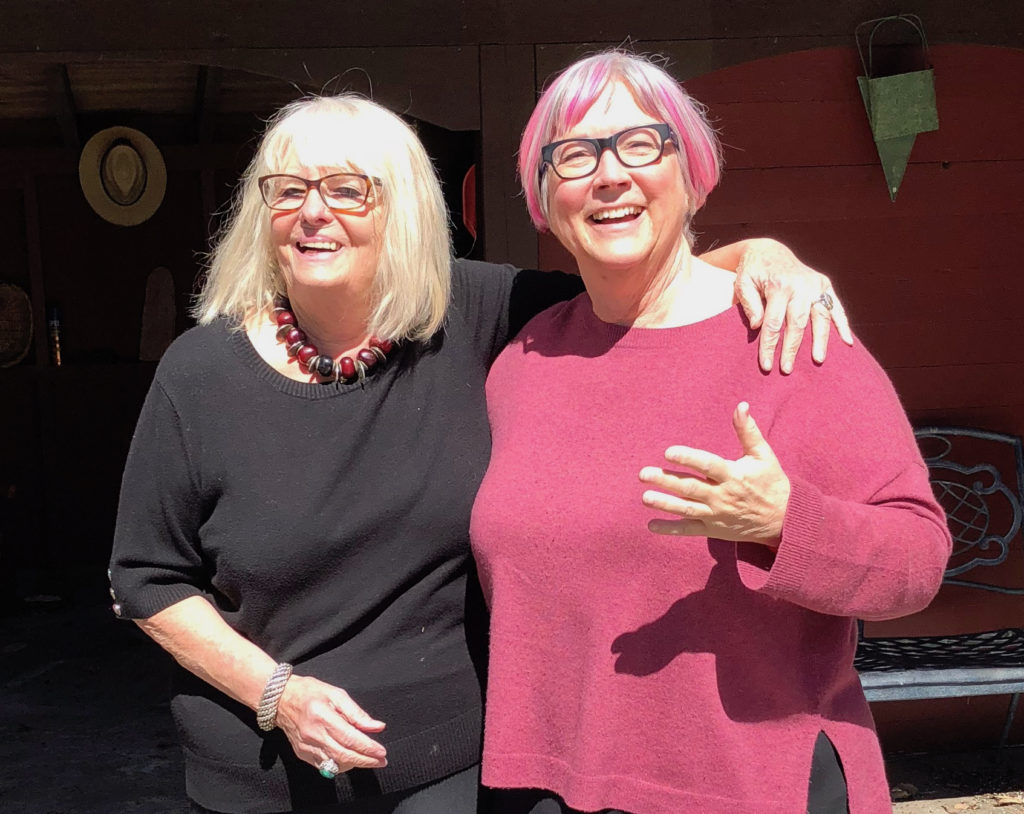
For today, one last post before I leave on Friday for a month-long retreat at the Forest Refuge:
Ajahn Sucitto’s very succinct response to a pair of written questions submitted during a recent Q&A session (also at the Forest Refuge).
Question #1:
“Is there anyone equivalent to the saints who one can ask for help with one’s practice?”
Question #2:
“If you could only give one suggestion or piece of advice to someone to further them towards liberation, what would that suggestion or piece of advice be?”
Sucitto’s response:
“Well, the answer to both these questions would be: Find a spiritual friend.
“And, if a teacher arises that you find yourself getting good results with, follow that teacher.”
***
I wholeheartedly agree.
After the retreat, I’ll be staying with my spiritual friend and teacher, Mirabai. (That’s us, in the photo above.)
Then I’ll be home on July 3 and hope to post again on July 8. I expect I’ll have a lot to say. Stay tuned.
